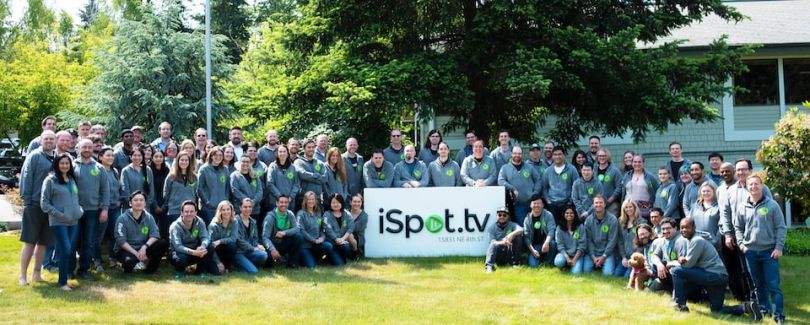This is an incredible, often bewildering time to be a human. Design any object on a screen, and a machine prints it out for you? We can do that now. Technology that tweaks your language to be as persuasive as possible? Yup, we created that. Machines that learn from their own experiences? They exist now. Virtual gaming tournaments? Those have been happening for years.
Real life is starting to resemble sci-fi novels by the likes of Octavia E. Butler, Ernest Cline or Philip K. Dick, and we think the tech coming out of these six Seattle companies might deserve a starring role.

Founded: 2014
Type of tech: 3D printing/laser cutting
What they do: The idea of a 3D printer was cool in 2015 — until you realized most of them weren’t capable of creating much more than plastic trinkets. So, rather than layer plastic filaments on top of one another, Glowforge takes a piece of material — leather, wood, glass, acrylic, even chocolate — and cuts it based on designs uploaded by the user. These designs can take many forms, from precisely measured layouts designed by software to a child’s drawing. Its printers can read and engrave curved metal surfaces, and cameras inside allow users to project their designs onto an object in real time. Founded in 2014, the Seattle company made its range of printers available to the public earlier this year.
Sci-fi element: Ever had a brilliant idea — for an art project or some kind of tool — that you never acted on because you couldn’t replicate it in the real world? Glowforge’s technology significantly lowers that barrier — simply find your materials, draw your design and voilà.

Founded: 2012
Type of tech: Analytics
What they do: There was once a time when dinosaurs roamed the Earth and Nielsen asked a small pool of volunteers to report their television viewing habits in order to extrapolate results and produce TV ratings. iSpot.tv seeks to bring television advertising into the analytics age, with real-time data on how much attention viewers pay to advertising, when they become tired of seeing the same ad multiple times and conversion rates.
Sci-fi element: Imagine a world in which advertisers reacted to how you felt about their work — where actionable analytics forced notoriously grating ads from companies like OxiClean or HeadOn to step up their games.

Founded: 2014
Type of tech: Machine learning
What they do: Everyone needs engineers right now, and competition is fierce among the companies who want to hire them. In an attempt to lure engineers, Textio’s own engineers have engineered an engineer’s solution: artificial intelligence that reads through a draft job listing word-by-word, suggesting persuasive alternatives to certain words, making sure the listing contains certain keywords and learning from the results.
Sci-fi element: As Textio and other companies learn to measure how we react to individual words and phrases, writing becomes less of an art form and more of a science. You could write a ten-part science fiction adventure saga about where this kind of technology might take our society — and then run it through a future version of Textio to make sure it holds the reader’s attention, pushes every emotional button, and even customize the text for individual readers.

Founded: 2015
Type of tech: Gaming
What they do: Matcherino provides software to help gaming groups put together and run online tournaments. The platform includes tools to help organizers crowdsource, pay out and gain sponsors for prize pools, and also provide portals for fans to donate, buy merchandise and stream coverage. The company came out of Techstars Seattle in 2015, and has since racked up almost $3 million in funding.
Sci-fi element: When Ready Player One-style e-sports tournaments start going down in virtual reality, there will be spectators. Companies like Matcherino will provide behind-the-scenes services to ensure the great moments in gaming have an audience.

Founded: 2010
Type of tech: Translating data into English
What they do: Narrative Science uses machine learning to turn vast reams of data into easily-digestible reports, written in a way that’s easy for humans to understand. The technology performs data analysis in a fraction of the time it takes a team of humans to do so, meaning that a business can make data-driven decisions without first becoming data experts. Founded in Chicago in 2010, the company recently opened a Seattle office focused on software development.
Sci-fi element: As machines become more and more complex, they require more skills and time to understand and interact with them. Artificial intelligence can now translate the work of machines — in this case, large amounts of data — into words that any human can understand.

Founded: 2015
Type of tech: Artificial intelligence
What they do: Bellevue’s DimensionalMechanics aims to help any business build their own custom artificial intelligence. The company’s NeoPulse Framework allows the creation, deployment and distribution of those solutions, either on a company’s servers or in the cloud. Building AI systems is costly, labor-intensive and reserved only for those who completely understand the principles involved. DimensionalMechanics hopes to lower those barriers with its platform, plus a range of services designed to train users in the principles and techniques used in the creation of artificial intelligence.
Sci-fi element: DimensionalMechanics CEO and co-founder Rajeev Dutt recently told Geekwire that his NeoPulse Modeling Language, a domain specific language used to automate the design of AI models, is “Turing complete.” That means the language can automatically develop anything that other major programming languages are capable of producing.









